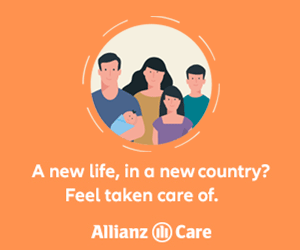Homeschooling in Philippines
Summary: If you're moving with kids to Philippines and homeschooling is something you're considering, it's important to do your research and learn about homeschooling in Philippines.
As the world continues to evolve, so does the education system. One of the emerging trends in education is homeschooling, a concept that is gradually gaining traction in various parts of the world, including the Philippines. Homeschooling in the Philippines is a unique and flexible approach to education that allows parents to personally oversee their children's learning process. This article will delve into the legality, prevalence, requirements, resources, university admissions considerations, and the pros and cons of homeschooling in the Philippines, particularly for expatriate families.
Is it Legal to Homeschool in the Philippines?
Yes, homeschooling is legal in the Philippines, including for foreign residents and expatriates. The Department of Education (DepEd) in the Philippines recognizes homeschooling as a legitimate form of education. However, it is recommended that families who choose to homeschool align their curriculum with the DepEd's K-12 program to ensure that their children meet the necessary educational standards.
Is Homeschooling Common in the Philippines?
While homeschooling is not as common as traditional schooling in the Philippines, it is steadily gaining popularity. More and more families, both local and expatriate, are opting for homeschooling due to its flexibility and the opportunity it provides for parents to be directly involved in their children's education.
What Specific Requirements are There for Homeschoolers in the Philippines?
While there are no strict requirements for homeschooling in the Philippines, it is recommended that homeschooling families follow the K-12 curriculum provided by the DepEd. This ensures that homeschooled children receive a comprehensive education that is on par with their traditionally schooled peers. Additionally, parents who choose to homeschool their children should be prepared to dedicate a significant amount of time and effort to their children's education.
Are There Groups or Resources for Families Who Homeschool in the Philippines?
Yes, there are several groups and resources available for families who choose to homeschool in the Philippines. Organizations such as the Homeschool Association of the Philippine Islands (HAPI) and the Philippine Homeschool Conference provide support, resources, and community for homeschooling families. Additionally, there are numerous online resources and forums where homeschooling families can share experiences and advice.
What Should Homeschooling Parents Take into Consideration for University Admissions in the Philippines and Internationally?
For university admissions, both in the Philippines and internationally, homeschooling parents should ensure that their children's education meets the requirements of the universities they wish to apply to. This often means aligning their homeschool curriculum with the DepEd's K-12 program. Additionally, some universities may require homeschooled students to take additional entrance exams or provide portfolios of their work.
What are the Pros and Cons of Homeschooling in the Philippines for Expat Families?
The pros of homeschooling for expat families in the Philippines include flexibility, the ability to tailor education to the child's needs, and the opportunity for parents to be directly involved in their children's education. However, there are also cons to consider. These include the time commitment required from parents, the potential for social isolation, and the responsibility of ensuring that the child's education meets university admission requirements.
About the Author
 Joshua Wood, LPC joined Expat Exchange in 2000 and serves as one of its Co-Presidents. He is also one of the Founders of Digital Nomad Exchange. Prior to Expat Exchange, Joshua worked for NBC Cable (MSNBC and CNBC
Primetime). Joshua has a BA from Syracuse and a Master's in Clinical and Counseling Psychology from Fairleigh Dickinson University. Mr. Wood is also a licensed counselor and psychotherapist.
Joshua Wood, LPC joined Expat Exchange in 2000 and serves as one of its Co-Presidents. He is also one of the Founders of Digital Nomad Exchange. Prior to Expat Exchange, Joshua worked for NBC Cable (MSNBC and CNBC
Primetime). Joshua has a BA from Syracuse and a Master's in Clinical and Counseling Psychology from Fairleigh Dickinson University. Mr. Wood is also a licensed counselor and psychotherapist.
Some of Joshua's articles include Pros and Cons of Living in Portugal, 10 Best Places to Live in Ireland and Pros and Cons of Living in Uruguay. Connect with Joshua on LinkedIn.
Additional Information:
- Philippines Guide
- Healthcare & Health Insurance in Philippines
- Members Talk about Healthcare & Health Insurance in Philippines
- Best Places to Live in Philippines
- Real Estate in Philippines
- Guide to Real Estate in Philippines
- Pros & Cons of Living in Philippines
- Cost of Living in Philippines
- 9 Healthcare & Health Insurance Tips for Expats in the Philippines
- 6 Best Places to Live in The Philippines
- 5 Great Places to Retire in Asia
- 2024 Guide to Living in Philippines
- Pros and Cons of Living in Philippines 2024
- 2024 Guide to Moving to Philippines

 Philippines
Philippines



